
Adi Ran – “Lets Conquer the World”
"You know, in a way I have an aversion to stages. Something’s wrong when the audience is sitting and I’m standing. I like when we’re all on our feet...

An Exclusive Interview with Chassidic Rock & Roller Adi Ran
No one really knows the size of the “Teshuva Movement” in Israel, the growing number of secular-born Jews that are coming home to observant Judaism. The conservatives cite a low six-figure number, while enthusiastic optimists claim that the number of Baalei Teshuva, or spiritually awakened Jews, claim that there are well over half a million “BTs”. No matter who is right, we all know that musical outreach is playing just as important a role as the seminar circuit, books and lectures.
A new genre of contemporary Jewish music, which some call “Chassidic Underground” and others refer to as “Alternative Chassidic,” shows both current and prospective BTs that they don’t have to discard their past. Adi Ran’s is the king of this genre. His refreshing individual style is a message to both Dylan-type fans and rock & rollers that they don’t have to throw away their past. Adi’s message is, “Come on in, folks – you can party as an Orthodox Jew!”
 The movie Ushpizin, which featured Adi Ran’s original music, brought him in the forefront of the English-speaking public. Today, many people that don’t understand a word of Hebrew buy his discs. Since Adi Ran is such an important nuance on the Jewish music scene, we here at Breslev Israel put him high on our interview priorities list.
The movie Ushpizin, which featured Adi Ran’s original music, brought him in the forefront of the English-speaking public. Today, many people that don’t understand a word of Hebrew buy his discs. Since Adi Ran is such an important nuance on the Jewish music scene, we here at Breslev Israel put him high on our interview priorities list. Adi Ran was born in Ramat Gan, Israel in 1961. As a youth, he became the musical star of Israel’s Boy Scout movement, especially in the Tel Aviv area. In his early 20’s, he had already gathered a loyal group of fans that followed him wherever he went playing his original music in Tel Aviv’s underground pub circuit. Then, life took a one-eighty…
BreslevIsrael: Adi, if we were to describe you as a Breslever Bob Dylan, would you buy the description?
Adi Ran: To an extent. True, Dylan obviously influences my music in flavor and content, but so do Led Zeppelin and Pink Floyd. Truthfully, our own Israeli musicians such as Meir Ariel, Arik Einstein, and Shalom Chanoch have influenced me more than the foreigners.
BreslevIsrael: How did you become a Baal Teshuva?
Adi Ran: I was always the spiritual type with openness and a thirst for spirituality. As a little kid, my favorite stories were from the Torah. I have always been an avid reader too. Despite my searching and the success in what I was doing, I felt a big empty gap inside. In 1993, when I was 32 already, I went on an intensive spiritual and intellectual search for what was missing in my life. After having plowed my way through all the oriental and exotic philosophy books you can think of, I decided to read Ecclesiastes and Proverbs. I was amazed to see King Solomon’s insights on life, written thousands of years ago but better descriptions of our contemporary situation than anything else. A found a depth and a penetrating truth in Torah that I failed to find anywhere else.
BreslevIsrael: So what became of your spiritual search on a practical level?
Adi Ran: A flood of changes in my life, at first, on an internal level. Quite soon, I began observing the Sabbath. Then, the flood-doors opened and things began to move. I put a kippa on my head, began wearing tzitzit, and started to grow pe’ot.
BreslevIsrael: What happened to your life once you began observing Shabbat?
Adi Ran: Keeping Shabbat is not only good for the soul, it heals the soul! Shabbat teaches a person to rethink priorities, wasting much less time and effort on material endeavors and to focus on the spiritual side of one’s life – that’s the real world.
BreslevIsrael: How did you make a connection with Rebbe Nachman and Breslev?
Adi Ran: Even before I became a Baal Teshuva, I had a keen interest in meditation. I loved it, but I wasn’t getting what I really needed. Shortly after I became religious, I discovered the writings of Rebbe Nachman. Rebbe Nachman showed me that his style of meditation – hitbodedut – surpasses anything else. Eastern philosophies are complicated, while Rebbe Nachman’s teachings have this indescribably beautiful simplicity. I connected with Rebbe Nachman right then and there, almost immediately. Hitbodedut and his writings became the bread and water of my soul. Back then, I was learning in a Kabbalist yeshiva in Ramat Gan, and I was deep into Rav Ashlag’s Preface to the Zohar and the Zohar itself. But, once I got hold of a copy of Likutei Moharan, my heart soared. I was learning it all day and most of the night. Another influence brought me close to Breslev, my good friend Shuli Rand, who was also becoming a Baal Teshuva and subsequently a Breslever at the same time. We helped each other.
BreslevIsrael: What did you especially like about Likutei Moharan?
Adi Ran: If someone has a poetic soul in the slightest, he can see that Likutei Moharan is written like a melody – it’s gorgeous.
BreslevIsrael: When did you go to Uman for the first time?
Adi Ran: Already in 1994, for my first Rosh Hashanna as a Baal Teshuva.
BreslevIsrael: Let’s go back to the subject of hitbodedut. What role does it play in your life today?
 Adi Ran: In essence, I was doing hitbodedut before I knew what it was. I’d see myself as a general atop a hill before making fateful decisions that would affect the outcome of the whole war. Hitbodedut is the connection point not only between man and Hashem but between man and himself. People are confused because they’re out of touch with themselves. The only way to maintain a clear head is hitbodedut.
Adi Ran: In essence, I was doing hitbodedut before I knew what it was. I’d see myself as a general atop a hill before making fateful decisions that would affect the outcome of the whole war. Hitbodedut is the connection point not only between man and Hashem but between man and himself. People are confused because they’re out of touch with themselves. The only way to maintain a clear head is hitbodedut. BreslevIsrael: What do you feel like on stage as a Breslever Chassid? Do you have a sense of mission?
Adi Ran: You know, in a way I have an aversion to stages. Something’s wrong when the audience is sitting and I’m standing. I like when we’re all on our feet, singing, dancing, and having a good time. I like when the audience enjoys being Jewish. As far as a sense of mission goes, I’m doing what I think Hashem wants me to do. One good song can do more for outreach than 100 ethics lectures can, especially in this generation. Every person has his inner spark, and you have to inject in him something that ignites that spark. In my case, that catalyst is music.
BreslevIsrael: Who’s the personality within Breslev that influenced you most?
Adi Ran: The “Saba,” Rabbi Yisrael Ber Odesser of blessed memory. He was the max, Breslev in every single limb and a selfless servant of Hashem. I also enjoy listening to Rav Eliahu Godlevski’s lectures. In any event, I’m pretty much an individualist.
BreslevIsrael: What project are you currently working on?
Adi Ran: I’m polishing the songs for my new CD, “The Point of Yearning.”
BreslevIsrael: Musically, how would you categorize it?
Adi Ran: Alternative Chassidic.

BreslevIsrael: In summation, how do you see the challenge of those of us that are doing outreach work within the hostile world of secular mass media?
Adi Ran: We have to conquer the worlds of music, media, internet, television, and cinema. We have to bring everybody to Hashem like the way you guys are doing at Breslev Israel. Be tough and don’t let anybody discourage you. Hashem’s with you.
BreslevIsrael: Thanks for the fantastic blessing, Adi, and for your time as well. We wish you success and blessings in all your endeavors, amen!



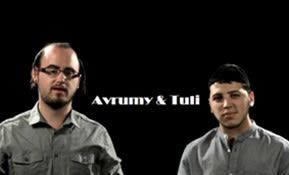
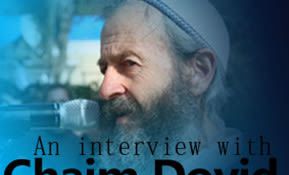
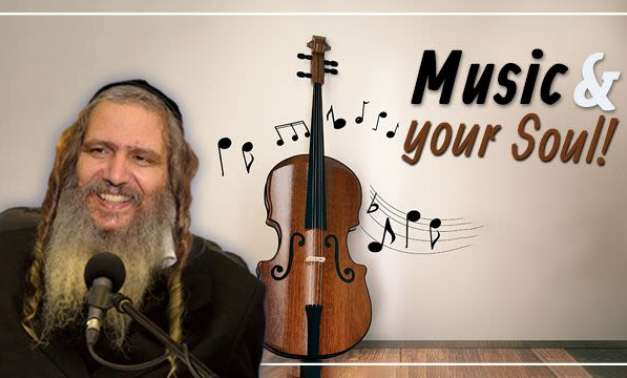


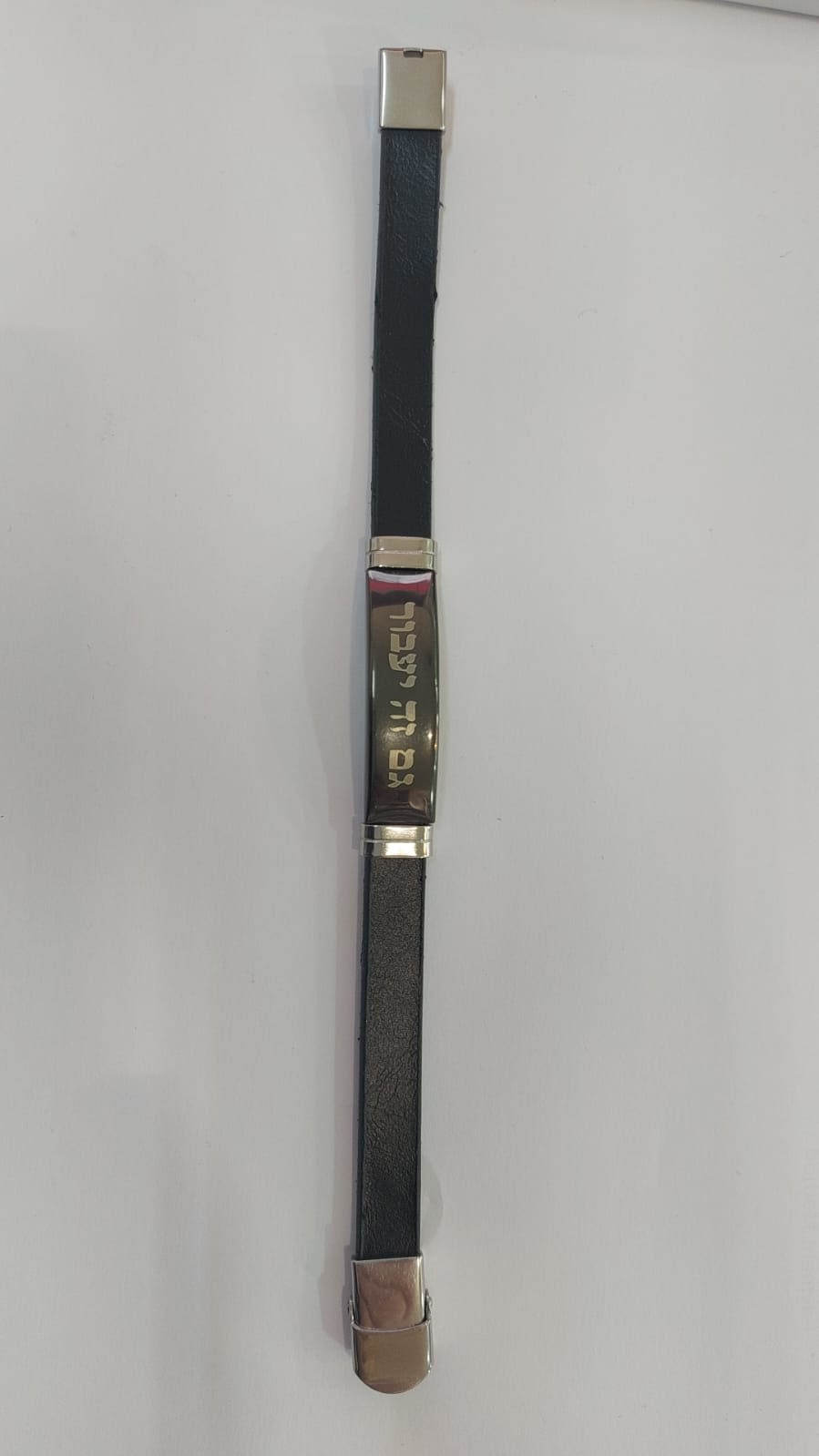
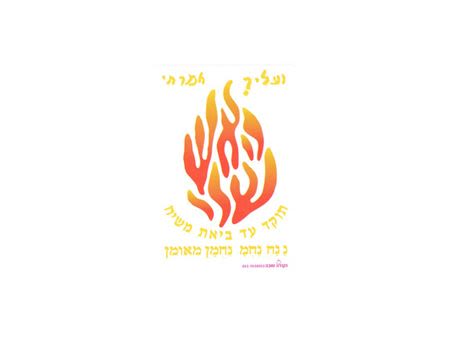
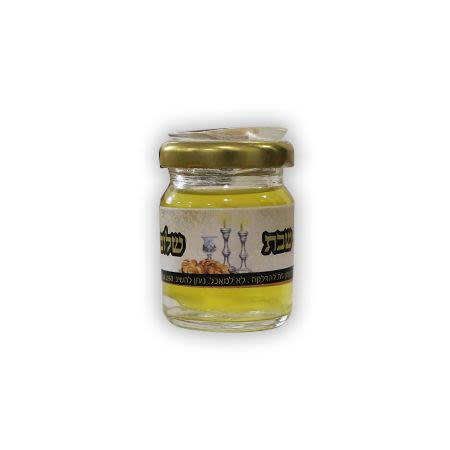

Tell us what you think!
Thank you for your comment!
It will be published after approval by the Editor.